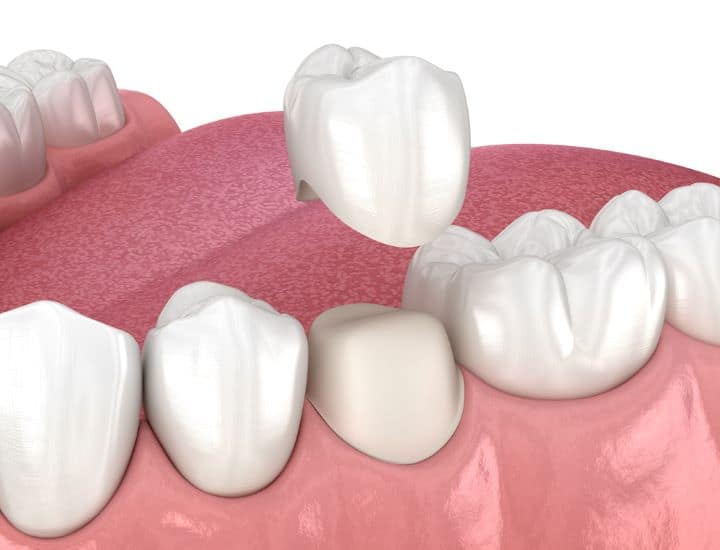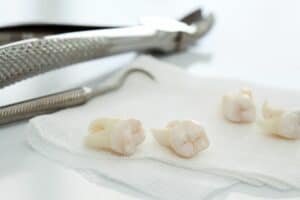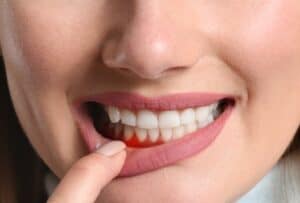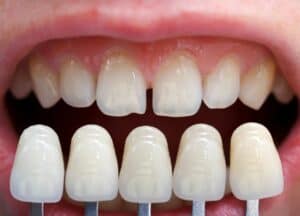Just like swollen gums and bleeding gums, bad breath is a symptom of an underlying health condition or oral disease. Bad breath isn’t a condition itself.
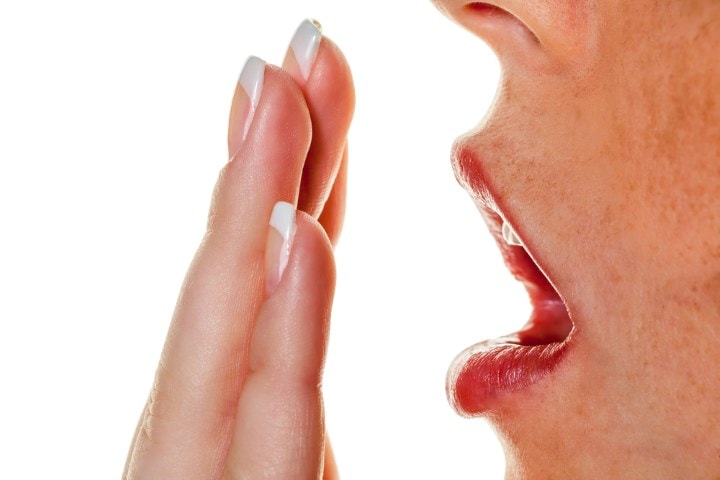
Bad breath can widely affect your social interactions; this can be a turn-off moment for you.
What we are going to focus on today are the causes of bad breath that lead to a chronic halitosis condition and are difficult to get rid of despite many supposed home remedies and treatments.
The reason for the ineffectiveness of the treatments is the inability to identify the root cause of the problem.
Once the underlying cause is known, effective treatment can be implemented. Let’s hunt the cause together to help you get rid of halitosis.
What is Bad Breath?
Above 80 million Americans suffer from chronic halitosis, and they refer to it as dragon breath.
9/10 spent over $400 to eliminate this condition. Halitosis is a medical term for bad breath and refers to a mouth odor that’s smelly and causes discomfort for oneself and others. Finding the cause of the problem is the key to addressing it.
How would you know whether you are suffering from bad breath?
Usually, no one says “You’ve got bad breath.” You need to identify it yourself for your comfort and the others.
You can also check for your oral hygiene or visit a dentist to know if your oral conditions are optimal
Another indicator would be how your colleagues or family members respond to you.
Do they avoid talking to you, or maybe they try to keep the conversation short? Ask for an honest opinion from your partner or best friend to find symptoms before finding the cause.
Causes of Bad Breath
There are multiple causes of bad breath. Knowing them is necessary for the treatment.
1 – Poor oral condition
When you don’t brush twice daily, the food particles and the plaque accumulate on your teeth and around the gums. The food starts to rot in the presence of oral bacteria that produce a terrible smell.
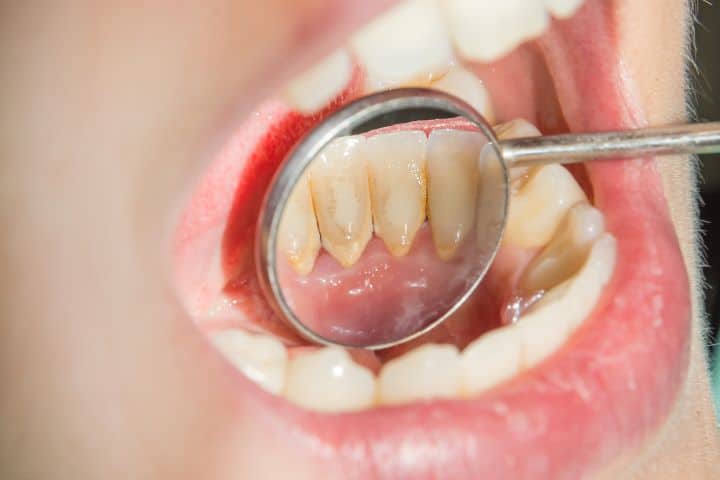
The constant accumulation of food particles and poor brushing and flossing habits will keep your mouth dirty, making it a safe place for bad bacterial colonies to live and grow. Individuals with crooked teeth or some different tooth anatomy harbor the bacterial army for longer.
The saliva in our mouth acts as a buffer and neutralizes the acidic products by the bacteria. However, salivation is improved upon regular stimulation of oral tissue with the help of brushing.
2 – Certain foods and drinks
A few of the things we eat or drink can cause bad breath. A few of them include:
- Acidic foods: Carbonated drinks and foods like lemon and oranges contribute to plaque accumulation on the teeth.
- Certain foods: Foods like garlic, onion, and fish can cause bad breath, but that induces temporary halitosis.
- Tobacco products: Nicotine and certain tobacco products contribute to gum diseases, which can indirectly contribute to bad breath.
- Alcohol: Ethanol or alcohol contains sugar, the favorite meal for bacteria. They act on them to produce a rotten-like smell. Moreover, alcohol is a great contributor to dry mouth. Hence, it can further enhance the lousy breath.
#3 – A few dental conditions
Certain dental conditions contribute to bad breath, which include:
- Gingivitis / Periodontitis: The infection of the mouth is caused by bacteria. Bacteria feed on the food particles adhering to the tooth, irritating the gum tissues. The minor irritation is called gingivitis, while severe gingival infection is called periodontitis.
- Cavities: When the tooth decays, the bacteria feed on it, producing malodor
- Dry socket: Dry socket may occur after a tooth extraction, especially a wisdom tooth. It’s the hub for bacterial growth again, leading to halitosis.
- Sjogren Syndrome: This causes dry mouth, which eliminates the buffering capacity of the oral cavity. It enhances the malodor as the neutralization action no longer exists.
#4 – Medical Conditions causing halitosis
Some health conditions are a massive contributor to bad breath. A few of them are:
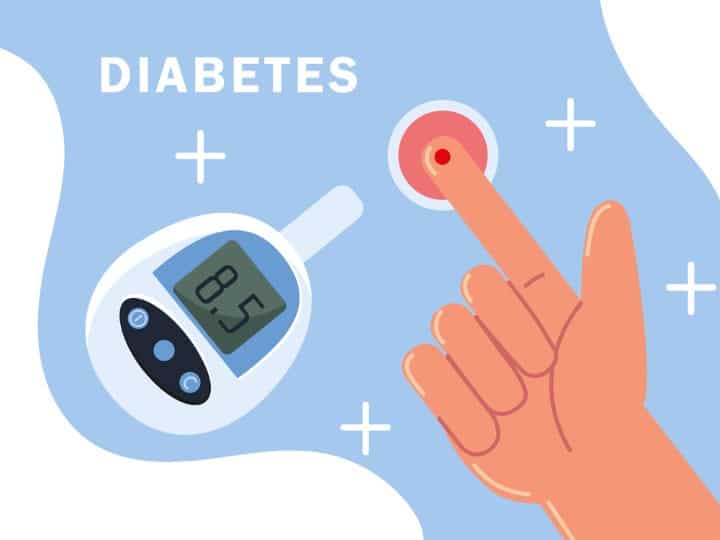
- Diabetes: A sweet, fruity odor is associated with diabetes as it causes two significant problems in the body. Firstly, periodontal diseases and the other is the production of ketones. Diabetes damages the blood vessels in the peripheral part of the body, reducing the blood flow just like in the oral cavity. When the gums fail to receive a healthy blood supply, they become prone to infection. Next, in diabetes, patients can’t make enough insulin to use carbohydrates; hence, the body utilizes fats. The fats, when burnt, produce ketones, which lead to the malodor.
- Kidney disease: Ammonia breathing is commonly associated with chronic kidney disease. People reported to have a smell similar to that of urine. The smell is produced by the buildup of an excretory product called urea in the body, which unhealthy kidneys fail to remove.
- Anorexia Nervosa: It’s an eating disorder characterized by not eating enough. This one comes with a foul, fruity odor from your mouth.
- Acid Reflux Disease: An acid reflux disease commonly called GERD causes the stomach content to flow back into the mouth. The stomach contains many acids and bacteria, and that causes you to produce a bad breath.
Keto Diet & The Bad Breath
Chronic bad breath at times is very hard to eliminate. And one of the causes of this chronic condition is the Keto Diet.
In the keto diet, your carbohydrate intake is reduced, and the body utilizes the fats. This causes the body to produce ketones.

The ketone body has a particular type of breath.
Though the diet may be good for weight loss, it comes with side effects due to ketosis compounds like acetone and acetoacetate.
Managing Bad Breath Through Oral Hygiene
The treatment and prevention can solely come with correcting the cause, which can help you see a massive improvement in bad breath. Bad breath persists mainly due to a lack of proper oral care.
Start brushing twice daily, two times a day, for at least 2 minutes each, followed by flossing and mouthwash. You’ll see an improvement in bad breath or halitosis.
Drink plenty of water and maintain a balanced diet.
Sometimes, many forms of gum disease occur due to the deficiency of specific vitamins and minerals. Use xylitol chewing gum to produce enough saliva to flush off the debris from your mouth.
Remember to use a tongue scraper or toothbrush to wash off the bacteria living on your tongue.
See your dentist if you have yet to see any improvement in your bad breath despite adopting all the habits mentioned above.
How to Improve and Prevent Bad Breaths?
Getting rid of bad breath may seem daunting, but it’s not as difficult as you may think.

Effective Brushing and Flossing Techniques
Brushing more than twice daily is okay unless you’re not being vigorous with your brushing technique to protect your teeth and mouth.
Use a soft-bristled brush after breakfast and once before going to bed. Remember to brush your tongue, too.
You may also use a dental floss to remove all the nasty bacteria hiding in between the teeth.
This can help you eliminate the unpleasant mouth odor that’s been stopping you from appearing in an interview for so long.
Utilizing Mouthwash for Bad Breath
The foul-smelling breath will not just make others uncomfortable, but it will also cause feelings of low confidence in ourselves.
If you want to get rid of your bad breath temporarily, a quick swish with a mouthwash can help you for sure. It will remove the food particles and can freshen up your breath for an immediate effect.
Using Tongue Scrapers to Improve Breath Odor
According to Harvard Health, a tongue scraper makes a significant difference. The yellowish, white coating on the tongue is a collection of food debris, bacteria, and dead cells that produce bad breath.
Role of Dentists in Treating Halitosis
A dentist can help you with halitosis and malodor. He’ll help you diagnose the cause of your halitosis before prescribing you any treatment or solution for it.
The primary solution will always start with counseling regarding oral hygiene maintenance and an effort to find the cause.
Majorly, scaling, and root planing are prescribed to restore hygiene, plaque, and calculus in the oral cavity.
Preventing Bad Breath Through a Balanced Diet
Whatever you eat it directly affects your overall health and bad breath. Eat a few foods to see a better improvement in your health.

1) Apples
An apple a day keeps a doctor and a dentist away. These help dislodge bacteria that stick to your teeth. These contain antioxidants, too, which inhibit bacterial growth.
2) Leafy Vegetables
Always keep a big bowl of salad with you at your meals. Add lettuce and spinach to the bowl, which is a natural deodorant for you. Greeny vegetables act as a buffer and neutralize the acid that’s produced in your mouth.
3) Parsley & Basil
These give you fresh breath as they can bind to sulfur-producing compounds and neutralize the odor. These, too, contain antioxidants, which are plentiful in kicking off the bacteria.
4) Probiotics
Probiotics increase the good bacteria in your gut and improve your oral health, too. It improves your breath and gives you great breath.
5) Fennel Seeds
These are the great ingredients to fight bad breath, especially in the subcontinental region. It boosts salivary production and helps remove bad breath.
Why does my breath stink during the morning?
Stinky morning breath can cause discomfort for you. You would have missed brushing your teeth the night before.
Sleeping with a mouth filled with food debris and bacteria can work on the food particles, producing bad breath in return.
What you can do is you can clean your mouth with proper brushing and flossing and then use mouthwash to get rid of the bad breath immediately.

